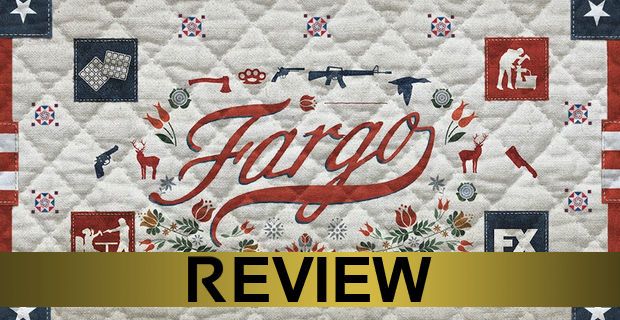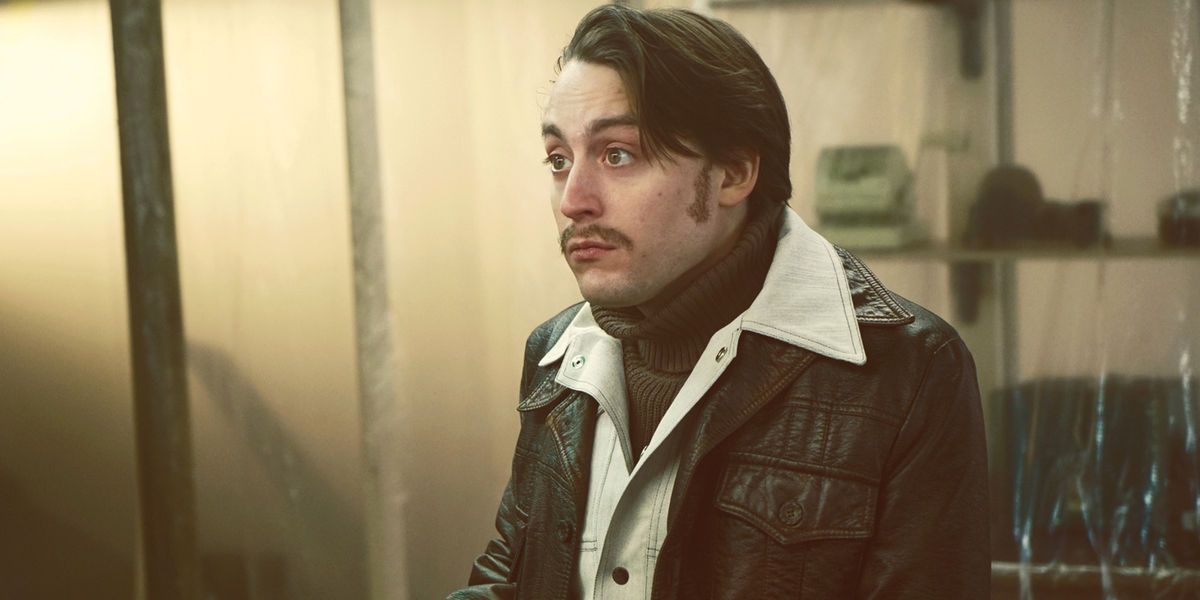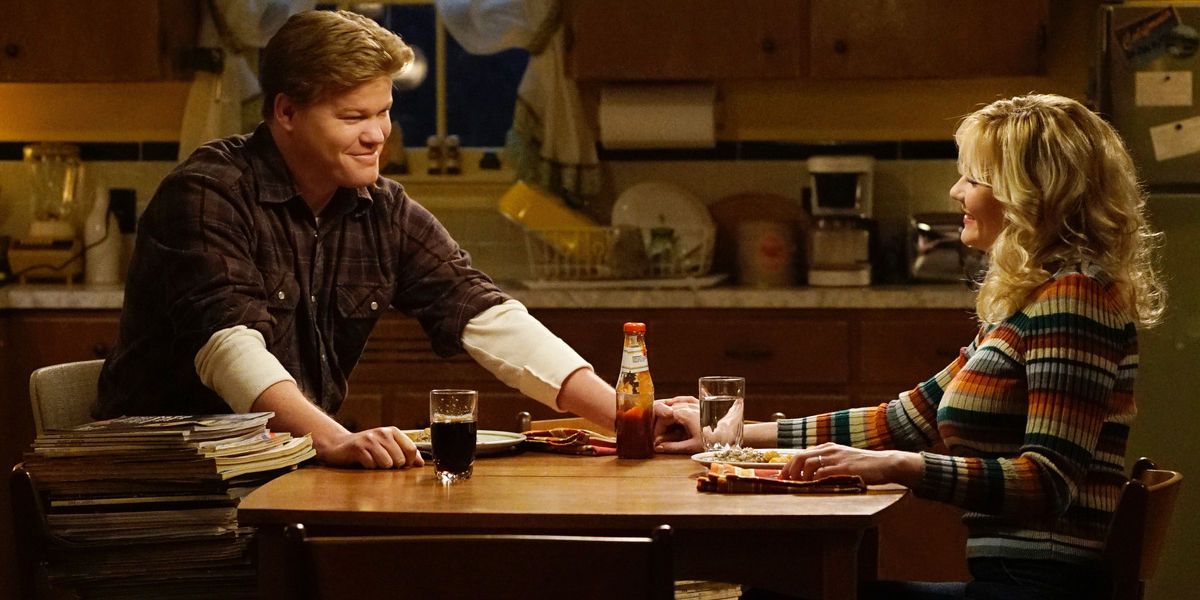[This is a review of Fargo season 2, episode 1. There will be SPOILERS.]
-
With all the pressure on creators to deliver the next installment of a successful television series, it seems understandable for them to want to go bigger, or to approach it from the idea that more narrative breadth is the same as expanding upon and improving all the elements that made the series entertaining in the first place. This is, unfortunately, not always true, as greater breadth sometimes means less depth, which is something television had to deal with earlier this summer. And, by all accounts, television was preparing to handle that disappointment again before Fargo served up the premiere of its much larger, more expansive, and, surprisingly, more sharply entertaining and observational second season.
While season 1 was set in a frosty world of murder and criminal conspiracies, season 2 is offer more of that. But it is also marked by in some fascinating ways by its specific time and setting of late '70s Minnesota. To that end, writer and showrunner Noah Hawley introduces the season 2 mindset before he introduces any of the main characters. Before Patrick Wilson's Lou Solverson (the character played by Keith Carradine in season 1) or Ted Danson's Hank Larsson (Lou's father-in-law) are onscreen, before Jean Smart's gangster matriarch Floyd Gerhardt or Kirsten Dunst's Lifespring-enthusiast/menace behind-the-wheel Peggy Blomquist make an appearance, there is a montage of images evoking American life in the late '70s. These images are accompanied by a voiceover from then-President Jimmy Carter, speaking to the "erosion of our confidence in the future."
Carter's "Crisis of Confidence" speech ushers in a season filled with suspicion, moral ambiguity, and whiffs of conspiracy, all kicked off in one moment of horrific violence visited upon the not-as-nice-as-they-seem Midwesterners who populate this particular heightened reality. And it's in this post-Vietnam, pre-Reagan world that Hawley finds not only his crime story, but also the ideas that are most central to the story's telling.
Those ideas come in often-strange ways in the season 2 premiere, 'Waiting for Dutch,' which manages its sprawling ensemble cast, while still remaining propulsive from the very first minute. There's the introduction of the Gerhardt crime syndicate of North Dakota, whose boss, Otto (Michael Hogan) suffers stroke, rendering his heretofore-untouchable family vulnerable to possible annexation by a rival organization. And then there are the misadventures of the youngest, Rye Gerhardt (Kieran Culkin), whose attempt to coerce a judge into clearing the sale of new electric typewriter sets off a triple homicide investigation, introduces a UFO, and somehow turns Jesse Plemons into a murderer all over again.
But that is just part and parcel to how Fargo gets its point across. One scene early on feels like a throwaway, but in actuality underlines the exploration of disenfranchisement and ethical confusion that is so central to the season. The short scene features Wilson at a bingo parlor, talking with two friends who more than conjure up memories of Donny and Walter in The Big Lebowski. It's here that Nick Offerman's Karl Weathers espouses his thoughts on everything from the military industrial complex to the assassination of Bobby Kennedy and the "unsolved" mystery of the unidentified girl in a polka dot dress.
The scene is played mostly for laughs – because, thankfully, Fargo has a decidedly light touch when it comes to its world of violence, corruption, and, apparently, governmental conspiracy – but the moment sets the stage for what's to come as well as provide some insight into the mentality of the season. Whether that proves to be as deranged and darkly humorous as what transpires in 'Waiting for Dutch,' the audience will have to wait and see. But considering what Hawley was able to accomplish with season 1 – which faced the far more daunting task of daring to share its name with a widely recognizable and highly regarded Coen brothers movie – chances are things are only going to get darker, more twisted, and, oddly funnier as the story unfolds.
One of the defining characteristics of season 1 was Molly Solverson's uncomplicated goodness, a trait she seemingly picked up from her father (and was brought to life in a fantastic performance from Allison Tolman). Here, Wilson exudes the same sort of untarnished integrity – as does his father-in-law and wife, played by How I Met Your Mother's Cristin Milloti – which would, under normal circumstances, feel as though the character was watered down in some way. But here, when set against the backdrop of unhappy housewives seeking self-actualization, uncharismatic butchers turned unwitting murderers, and dual crime syndicates preparing to go to war, the conventionality of a character like Lou Solverson becomes the series' saving grace. It's what sets him (and those around him) apart from the dark wave of violence and amorality washing over the Land of 10,000 Lakes and beyond.
As with any series worthy of discussion, Fargo has some incredibly big ideas. And as with many series that get spoken of, Fargo tends to explore its ideas through a particular lens of violence, paranoia, and seemingly unending chaos – elements that are, sadly, as prevalent today as they were in '79. It all adds up to an impressive start to the sophomore season of a series that, by all accounts, shouldn’t have been as good as it was the first time around. Fargo proved naysayers wrong a season ago, and now it looks to be proving the idea of the sophomore slump wrong, too.
-
Fargo season 2 continues next Monday with 'Before the Law' @10pm on FX.
Photos: Chris Large/FX



